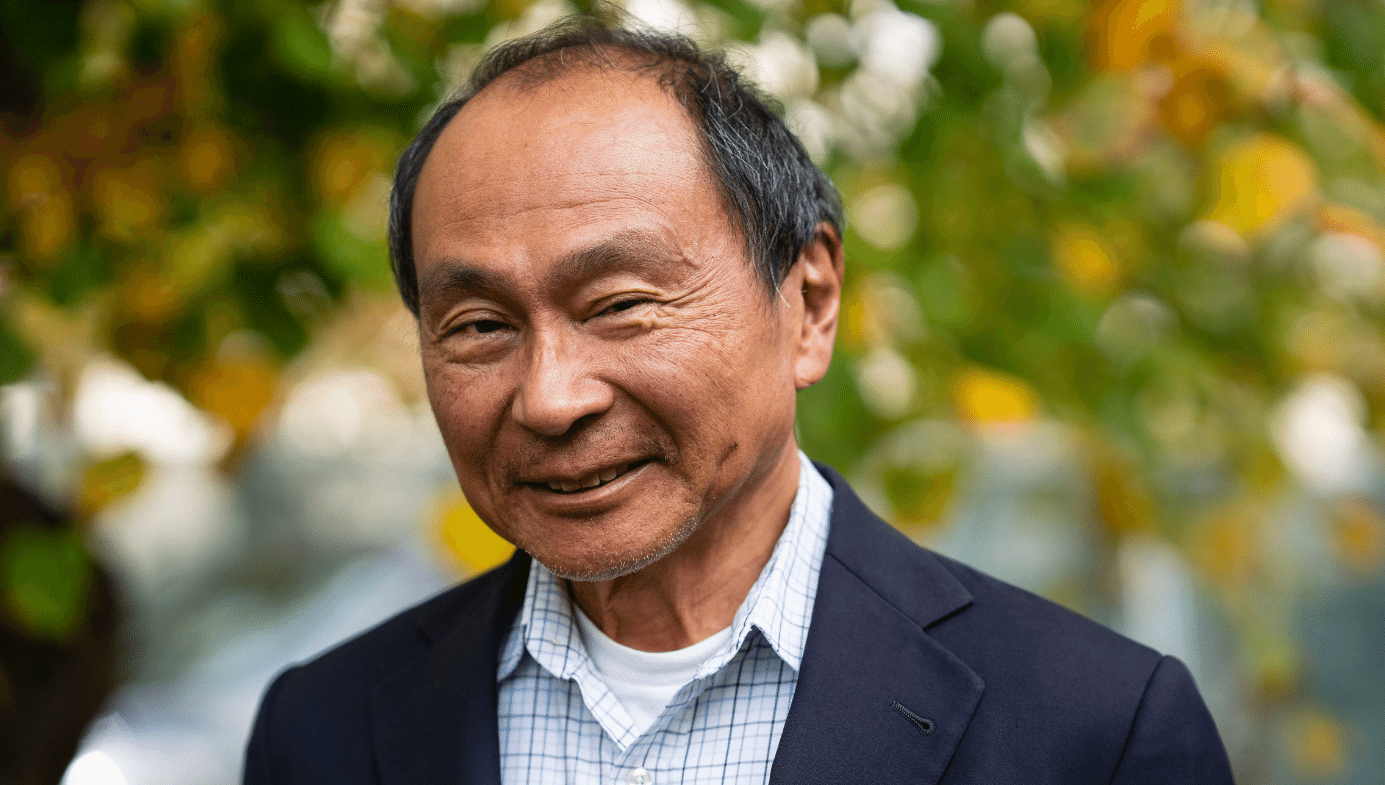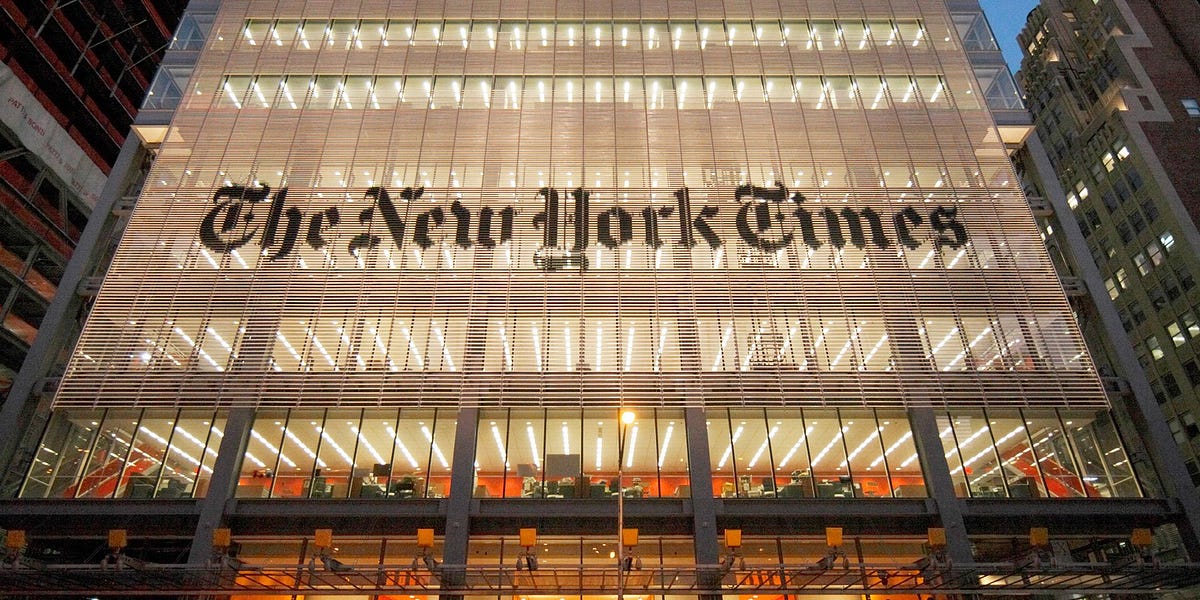
Editor's note: Some may question my decision to publish Richard Hanania, especially in light of the recent revelations by the Huffington Post. I want to clarify that I am sharing his work not because I am dismissing the seriousness of far-right extremism among young men. On the contrary, I believe it is a genuine problem that demands thoughtful responses.
The reason behind publishing Hanania's essay below lies in the scarcity of narratives portraying young men's journey away from extremist ideologies through the processes of maturity and moderation. We need more stories like the one Richard offers to serve as guidance for those who may be falling into radicalism.
Over the years, I have seen many people ‘cancelled’ and have watched as friends and colleagues have become politically radicalised and personally bitter. Because of this, I believe it is essential to highlight individuals who have undergone a transformation through moderating their views — resisting the trap of victimhood and grievance.
As Oscar Wilde famously quipped, every saint has a past, and every sinner has a future. Therefore, if someone who was once an extremist has managed to grow and evolve positively, their narrative holds value and deserves to be shared.
— Claire Lehmann, Editor-in-Chief
Every story of how an individual came to their political and social views has both a psychological and intellectual component. Recently, it’s been revealed that over a decade ago I held many beliefs that, as my current writing makes clear, I now find repulsive.
My posts and blog comments in my early twenties encouraged racism, misogyny, misanthropy, trolling, and overall bad faith. Phrases like “racism” and “misogyny” get thrown around too easily, but I don’t believe there’s any doubt many of my previous comments crossed the line, regardless of where one thinks that line should be. Below, I’ll offer an explanation for why I wrote such things, and why I no longer hold such views. But first it’s important to discuss the nature of the recent journalistic attack and what it is trying to accomplish, and why I think it’s likely to fail.
My initial instinct was to either ignore the story or simply denounce the source and its methods. The journalist behind the piece is a supporter of antifa, and in the days before publishing his article he reached out to everyone he could think of to try and get them to cut ties with me. Sensing what was going on, nobody took the bait. He’s now leading a mob on Twitter and telling people to watch for the “fallout,” while tagging those in a position to hurt my career.
Some fallout to look out for:
— Christopher Mathias (@letsgomathias) August 4, 2023
Will @HarperCollins still publish Hanania's book?
Will he stay a visiting scholar at @UTAustin?
Will @substack take any action?
Will @bariweiss's university fire Hanania?
Will @Stanford still invite him to lecture?https://t.co/NOPSmIc0vH
I think he and his followers will continue to be disappointed. People know that what I think is reflected in my corpus of work over the last several years, rather than embarrassing takes in my early 20s about the 2008 election. Fifteen years is long enough to graduate junior high, go through all of high school and college, earn a PhD, and get a third of the way towards being a tenured professor. If that’s not a long enough time to be beyond the statute of limitations for holding repugnant views one later renounces, then there’s really no hope for us ever moving beyond cancel culture.
Even five years ago, the media could set the narrative, tell people what was important, and how they should react to any particular story. We appear to be moving past the worst of the cancellation trend. Most outside of a certain echo chamber realize this kind of reporting is contemptible. The goal is not to engage with ideas, but to simply silence a person and remove them from polite company. To not have to discuss their ideas on account of other ideas they put forward at a different time of their life and which they may no longer even believe in.
Some insight into how these people operate: Huffington Post asked me to comment, and practically every question was along the lines of “does your previous employer know? How about your academic affiliations? etc.” It’s not about informing the reader, or trying to bring understanding about something happening in the world. The entire journalistic endeavor revolves around the goal of “unpersoning.”
While those hoping for a cancellation are not worth engaging, I do think that I owe my readers an explanation of how I came to the positions that I once held, and why I now find many of them so repugnant. This isn’t simply about my own personal journey, but can hopefully serve as a guide to others who are tempted to go in the direction of a race-centered view of the world.
The revelation of my anonymous writing clears up what some consider a mystery, which is why such a large portion of my current work involves attacking right-wing collectivism and illiberal beliefs (see here and here). The truth is that part of it is self-loathing towards my previous life. I all too clearly notice the kind of sloppy thinking, emotional immaturity, and moral shortcomings that can lead one to adopt a quasi-fascist ideology, and am hard on others because I’m hard on myself for once holding such views.
When I try to reconstruct my emotional status and reasoning of 12-15 years ago, a few things stand out. First, there was the desire to just adopt a posture that was the polar opposite of those I considered political enemies. So if liberals lied a lot about race, I needed to speak “harsh truths,” without much careful thinking about whether I was actually getting at truth or simply being similarly dogmatic. If they denied the overwhelming evidence in favor of heredity being important for individual outcomes, then I had to be a caricature of a genetic determinist. They required PC-speak, so my tone of course needed to be as offensive as possible. It’s really that stupid, and thinking about my own history has made me extra sensitive towards noticing the flaws of others who seem to “reason” in a similar way.
I generally hate when people play the “mental illness” card, in part because it’s too easy, and also because I don’t like the language and heuristics that generally accompany such discussions. That said, it would be dishonest to pretend like my thinking has always been purely the result of dispassionate analysis. It’s probably not too difficult to believe that at an earlier point in my life, I wasn’t the greatest at forming normal and healthy relationships with other people. Around 2008, I had few friends or romantic successes and no real career prospects. Naturally, this led me to look around, and come to the only logical conclusion, which was that I was naturally superior to everyone else and women in particular shouldn’t have any rights. Strangely enough, now that I have a fulfilling personal life and objective career success, such ideas don’t appeal to me anymore.
Recently, I argued against anonymity in writing about political and social issues. Again, this was a veiled form of self-criticism. People imagine anonymous personalities enriching the discourse by putting forth unpopular arguments that would otherwise be ignored. Although that sometimes happens, the vast majority of the time, being anonymous gives individuals a license to be a lot more extreme and uncivil than they would otherwise be, ultimately poisoning the discourse.
When I was writing anonymously, there was no connection between the flesh and blood human being who would smile at a cashier or honk at someone in traffic, and the internet “personality” who could just grow more rabid over time, secure in the belief that nothing but the lulz mattered because the internet was the place where we just went to have fun. And yes, I know I’m not “white” by most people’s definition, but when you’re that far checked out of reality, you might as well go all the way. The fact that right-wing racialist movements are so filled with non-whites just proves that assimilation works and shows why the whole project is so absurd.
So yes, I truly sucked back then. As far as my intellectual journey, I’ve come to firmly believe in classical liberalism, due to a process of elimination as much as anything else. Since I’ve started paying attention to politics, we’ve seen Iraq, the financial crisis, the rise and fall of ISIS, the continuing growth of China, the increasing relevance of social media, the Great Awokening, the Trump movement, COVID-19, and now the Ukraine War. Having gone through all that turmoil, America’s economy remains strong, and for all our problems, each of the potential alternatives from Chinese technocracy to Islamist theocracy to Putinism has to be considered an utter failure. The Year of Fukuyama, or as everyone else calls it, 2022, only confirmed the direction I was already leaning in.

The more I looked at the data, the more I became convinced that liberalism simply worked. Steve Pinker’s books of the last decade are irrefutable on this point. Nonetheless, many pundits and intellectuals continue to argue that what we need is not sensible reform — for example, what I argue should be done with civil rights law — but an overthrowing of the entire system and a move to a new “postliberal” order. I’m convinced that most of them are just projecting their personal unhappiness onto the rest of the world, just as I once did. I can understand seeing flaws in the modern West, but I can no longer comprehend looking at any other alternative and thinking it’s likely to be better.
Other writers have shifted my views on specific issues. Bryan Caplan and Alex Nowrasteh have convincingly argued that even if groups differ in skills or cognitive abilities, we can all still benefit from the division of labor. If the worry is that migrants might vote for socialism or commit crimes, then the answer is not to exclude people from society or otherwise discriminate against them based on group averages, but to attack socialism and crime directly. The Bukele miracle saw an order of magnitude drop in the murder rate in El Salvador within a few years, and it did not involve changing the demographics of the country. To try to plan the perfect demographic mix because it might give you a 2 percent extra chance at a slightly better outcome is a fool’s errand, when there are so many potential political reforms that are sure to have an even greater impact.
One of the most dishonest parts of the Huffington Post hit piece is the argument that I maintain “a creepy obsession with so-called race science” and talk about blacks being inherently more prone to crime. I do no such thing, and ultimately believe that what the sources of such disparities are doesn’t matter. We simply need to come down hard on crime, which involves reforms like investing in policing and making use of DNA databases and facial recognition technology. The reason we can’t do this is because of concerns over disparate impact, a cancerous idea that needs to be extirpated from the law and our broader culture more generally.
The reason I’m the target of a cancellation effort is because left-wing journalists dislike anyone acknowledging statistical differences between races. My mistake in a previous life was assigning collective guilt based on certain undeniable facts. Leftist suppression on these issues has clearly backfired, and we have to work towards getting to a place where we neither deny reality like much of the political establishment does nor react to their power and influence by adopting a mirror image of woke ideology and its doctrine of collective guilt. Again, as with how to run an economy or ensure the peaceful transfer of political power, classical liberalism is the only plausible answer I can see to this dilemma. There’s been a long stream of young right-wingers who have recently been exposed for having once held extreme views on race and gender, and it’s an easy trap to fall into given the absurdity of liberal lies on these topics. I want to help others avoid doing so.
On a similar note, one of my most popular pieces is about how women negatively influence the ability of institutions to maintain cultures of free speech. Under a pseudonym, I’d previously put forth ideas like giving women political power was the end of civilization. Quite a conclusion to jump to based on what was until recently a 10-point partisan gap! Women may have worse views on free speech, but they are also less pro-war and, as Tyler pointed out to me, have historically been less enamored by the great collectivist ideologies that have sought to remake the world. The influence of women on politics therefore isn’t an unalloyed good, as respectable people are supposed to believe to remain in good standing with the mainstream left, nor all bad, as many right-wingers argue. A young LARPer with a tendency to get carried away with certain arguments, enamored by the romantic idea of grappling with supposedly suppressed ancient truths, simply couldn’t handle that level of nuance.
I know that many will troll me and say “but someone told me the media is honest and good.”

It's still true! The media does some very bad things, but there are still many good journalists out there doing valuable work. A decade ago, something like this happening to me would've made me advocate for arresting all reporters. But that kind of overgeneralization based on group identities is how you end up turning to wokeness, racism, incel-level misogyny, and other kinds of hateful ideologies. It's never too late to learn from your mistakes, or those of others. This goes for both online racists and journalists out to cancel people. This kind of perspective is central to the sensibility of small-l liberalism.
Should you think less of me for my previous writing? I can definitely see the argument for that. Many are tempted into becoming political extremists at an early age, but those who never feel that pull, or who refuse to succumb to it, should probably get some credit for that. At the same time, if you think my writing now shows any degree of wisdom or good judgment, consider what a miracle it is that I’ve come this far.
Since I sucked so much a decade ago, it’s fair to ask whether I still suck today. In certain ways, yes. I just told you that I see myself in many anonymous writers and twitter accounts, and instead of that eliciting sympathy, I just write them off as hopeless cases. I have the least empathy in situations where I should probably have the most. That’s likely not a good thing, and something I should work on. Growing older is ideally a process of trying to suck less and less over time, and one thing I’m secure in is the belief that I’ve at least been making progress on that score.
Note: this text was originally published on Richard Hanania's newsletter.







